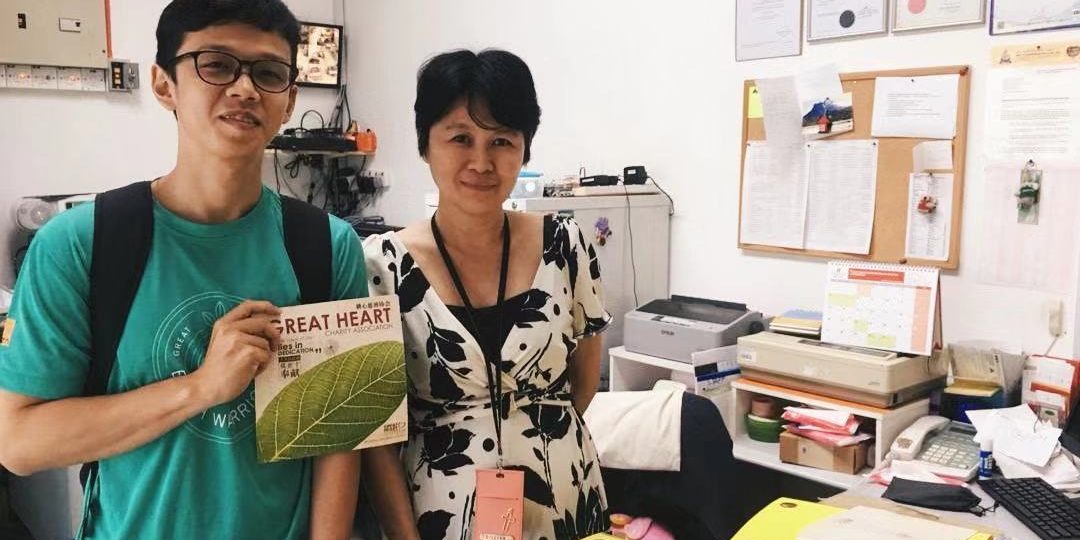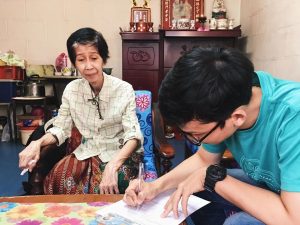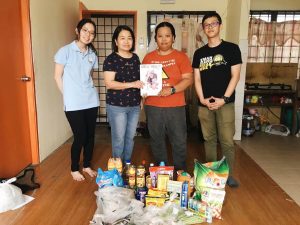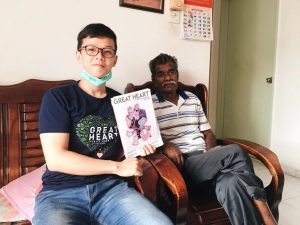The Silent Social Worker
When I graduated from Form Six, applying for higher education was a struggle due to my grades. My teachers gave me two options: to either spend a bomb on private education so that I could study what I wanted, or to choose a random subject at a public university and hope to get in. Against my parent’s wishes, I chose the second route, and felt torn when I was notified of my approval. While I was happy to save money on the tuition fee, I was worried about where the course would take me.
Due to the nature of my course, I learnt a lot on social work. As my lecturers thought us about how our country’s economy influenced the different social classes in Malaysia, I couldn’t help but wonder- was there no channel where I could help the underprivileged? When I brought my questions to my peers, many told me to get my head out of the clouds as I didn’t even have enough to support myself, much less anyone else. However, I wasn’t surprised at this response as social work is not the norm in Malaysia. Just because it wasn’t, though, did that mean it had to fall to the wayside? The attitude that most people have towards charity work is that it is a meaningless job that doesn’t pay. Many believe that it brings no value to modern society.
Despite this, nothing could stop me from walking towards social work. As I struggled to decide where to do my internship at, my lecture told me about Great Heart Charity Association, where my seniors had interned at before. Unlike other organisations, Great Heart focuses on helping those who live in poverty. Their services support single-parent families, elderly folk who live alone, the disabled and those stricken with chronic illness. The process of assessing those who need assistance isn’t too complicated, and those who are found eligible receive aid in terms of dialysis treatments, food and healthcare.
What I struggled with the most was with the beneficiaries themselves. More than once I have found discrepancies in what the beneficiaries of our aid say and what their condition actually is. Along with them being eligible for government aid and cases which involve sudden death, I found myself not being able to close cases due to the issues that would arise all of a sudden.
Great Heart focuses on cases in Kuala Lumpur and Selangor, which is very modern but also very human. Those we assess are also very interesting. Some are warm and inviting, offering snacks when we visit, and us having to decline due to their circumstances. Others are calculative, refusing us entry into their home and get very emotional. Many call daily asking if their aid has been given, and tell us that they’re simply awaiting death when the answer is ‘not yet’. Some people are angry when we are unable to provide housing for them, and for others, our aid is their last resort before they decide to borrow money from loan sharks.
What’s common, though, with all these cases, is that they will do anything to survive their harsh environment.
During my internship, I was mostly involved with meeting our beneficiaries, conducting assessments, making records, following up with these cases along with supplying aid. What I worried about the most was that one of the beneficiaries under me would pass on before I could get them the health they did. I wouldn’t be able to live with the regret.
In the six months that I spent with Great Heart, I got to witness the ups and downs of social work, who even gave up their weekends to meet with the beneficiaries; who got to see the worst of society and yet did not give up in their work. Even though I have left to continue on with my studies, I will never forget the work that Great Heart charity has done, and will continue doing.
还记得中六毕业的时候,由于成绩只是勉强过关,在升学方面面临人生的一大抉择。老师给予了的两个建议(一)花钱去私立选择一科‘看似’有兴趣的科系(二)选择在公立报读 ‘冷门’的科系。顶着家人反对的声浪,我毅然决然的选择了报读了‘冷门’科系。当我被通知公立大学录取了,内心却有着两极化的感受。高兴雀跃因为能省去不少的费用但担心着前途茫然的科系。
因为科系的原由我修读了许多关于社工的课,当时老师在台上谆谆教导着,国家福利体系如何影响着不同阶层,我不禁在想,难道就没有任何管道能帮助弱势群体吗?然而,当我分享此想法给身边的人,得到的回响不外乎;“你自身都无法养活,如何帮助别人?简直痴人说梦话!”。我并不感到惊讶,因为社工这行业在马来西亚并不普遍。可是,就因为不普遍,就应该遭到奚落吗?人们对于社工的刻板印象不外乎收入微薄或根本不应该拥有工资。因为他们无法带来利润与生产价值给这现实的社会。
虽然如此,这没有阻挡我前进的步伐。在我烦恼着该去哪里实习的时候,我的教授向我伸出了橄榄枝介绍了我的学姐工作的地方(耕心慈善协会)。跟其它国外机构相比,耕心慈善倾向于帮助贫穷群体。服务的对象包括了单亲家庭,独居老人,残疾人士和刚遇到意外疾病的。审查的个案可能不是特别的复杂,个案可以规范为洗肾,食物捐助及医疗资助的。
但他们(受惠者)千奇百怪的人生阅历和态度,才是我作为社工的考验。我遇过不只一次要结案时,都会有突发状况。发现收入与口述不合,政府援助通过,和突然逝世等等。耕心慈善的个案服务范围大多数都集中在吉隆坡和雪兰莪州。虽然整个城市都很忙碌与现代化,但其实很有人情味。拜访过的个案也很有趣;有人会热情款待,有人准备茶水糕点和食物,当然以上的状况通通都要拒绝。
可不是全部个案都那么的顺心,有些人很算计,有人拒我们之门外,有些人很會情緒威迫;有的人每天都打電話來問援助通过了來沒有,發現還沒就说等死罢了,有的人想要我们提供住所,資格不符就說要投诉,更有人坦言如果没有辅助,他们便会向大耳窿借钱过活。
但每个个案都有一个共同点,那就是他们会在恶劣的环境下用尽一切办法挣扎求存。
我每天工作的行程都周旋在约见受惠者、审查、记录、會談、跟进、拟信以及报销援助。但我最让我担心的事,怕有一天,也許我的個案援助通过还没通过他/她便去世了。这会让我感到无比的惋惜与懊悔。
在六个月的实习里,我见证了一同打拼的社工赫赫业业,周末也疲于约见受惠者;也看清了社会底层生活,焦头烂额地忙着生计。虽然我已离开了这里继续升学,但我永远都不会忘记耕心慈善社工工作的点点滴滴。
Author: Wai Dee
Great Heart Charity Association student intern
- Conducting an assessment
- Providing aid in the form of groceries
- Home visitation





